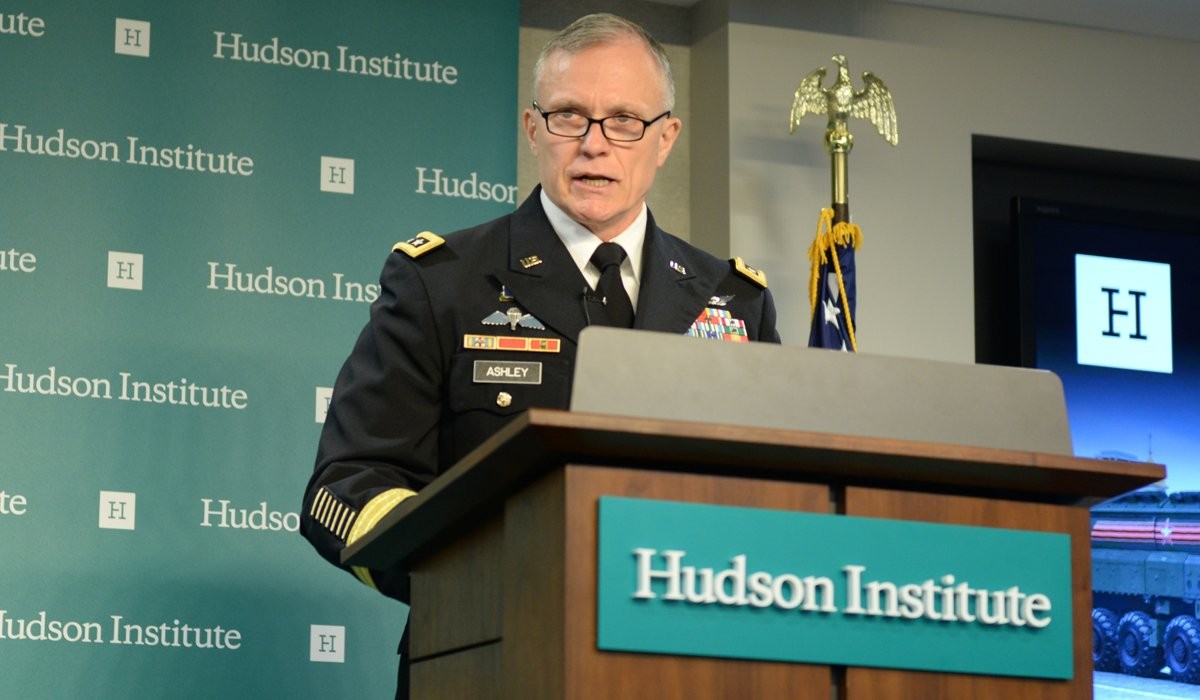 Photo Courtesy: DIA on Twitter
Photo Courtesy: DIA on Twitter
Russia & the CTBT – need for concern or false accusations?
Last week, Lieutenant General Robert Ashley, Director of the US Defense Intelligence Agency, suggested Russia might have been violating the Comprehensive Nuclear-Test-Ban Treaty (CTBT) by secretly testing nuclear weapons in an archipelago in the Arctic Ocean called Novaya Zemlya.
The CTBT prohibits the test of any nuclear yield, for either military or civilian purposes. The US signed, but never ratified the treaty. Although the CTBT never entered into force, in 1996 both the US and Russia agreed to abide by it, therefore committing to comply with a zero-yield standard.
According to Ashley, who spoke at an event held by the Hudson Institute, Russia is in the process of modernizing its nuclear arsenal and incrementing its capabilities.
Asked whether the Russians are merely set up to conduct experiments that would violate the zero-yield ban, or they are actually doing so, Ashley responded “we believe they have the capability to do it the way they are set up,” but refrained from providing further details.
Ashley wasn’t the only one in the room implying Russia’s negligence – both Thomas DiNanno, US State Department’s Deputy Assistant Secretary, and Tim Morrison, National Security Council official, mentioned they had reasons to believe Russia wasn’t respecting the zero-yield rule.
This is the first time US government officials have publicly denounced Russia for violating the treaty.
Russia’s reaction
Although Russia hasn’t provided an official response, several Russian officials have commented on the recent accusations.
Permanent Representative to the UN Mikhail Ulyanov declared Russia has been and still is observing the treaty’s indications. Head of State Duma Defense Committee Vladimir Shamanov called Ashley’s allegation “irresponsible,” and said such allegation indicates a lack of professionalism on behalf of the US military.
These statements suggest the news about the American allegations hasn’t been well-received by Russia.
What’s the logic behind the accusation?
Since the beginning of his administration, the Trump administration has been very vocal about its opposition to the nuclear arms control treaty between the US and Russia. Last October, the administration pulled out of the INF claiming the Russians had violated its terms; President Trump then labelled New START a one sided, bad deal (and, to this day, continues to avoid the discussion on its extension).
The current administration’s aversion to these agreements might, however, be interpreted as part of a strategy that aims at pulling out from all nuclear arms treaties with Russia, not because they’re flawed, but because the administration wants to exceed all the limits they set.
Rather than a sincere concern about Russia’s modernization program, then, Ashley’s allegation might have been the result of inference – a well-staged move to support the administration’s plan.
As some experts put it, “it’s now open season against the CTBT for those who want to trash another treaty” – and it’s no secret that some members of the Trump administration are against the CTBT.
There is no doubt Russia infringed the INF. That does not, however, mean that the US is authorized to accuse Russia to be in violation of all other nuclear agreements. Yet, US State Department spokeswoman Morgan Ortagus seemed to insist Russia’s violation of the INF inevitably implies an infraction of the CTBT.
No need to get alarmed
Despite Ashely’s insinuation, there is no public evidence of Russia’s violation.
Executive Secretary of the Comprehensive Nuclear-Test-Ban Treaty Organization (CTBTO) Lassina Zerbo declared the media might have overstated Ashely’s statement. Zerbo also confirmed the CTBTO has not detected any signs of Russia’s testing activities.
It’s worth mentioning it wouldn’t be the first time a member of the US Intelligence Community wrongly accused Russia of non-compliance with nuclear testing limits. Both the Central Intelligence Agency and the Defense Intelligence Agency falsely accused Russia of violating the Threshold Test Ban Treaty in 1990.
If the US’ goal truly is that of enforcing the zero-yield rule, then the Trump administration should push for the US’ ratification of the CTBT, so that a concrete method of compliance and verification can be established. Judging from the administration’s apparent lack of interest in the treaty, though, it’s very unlikely we’ll see such outcome unfold.





